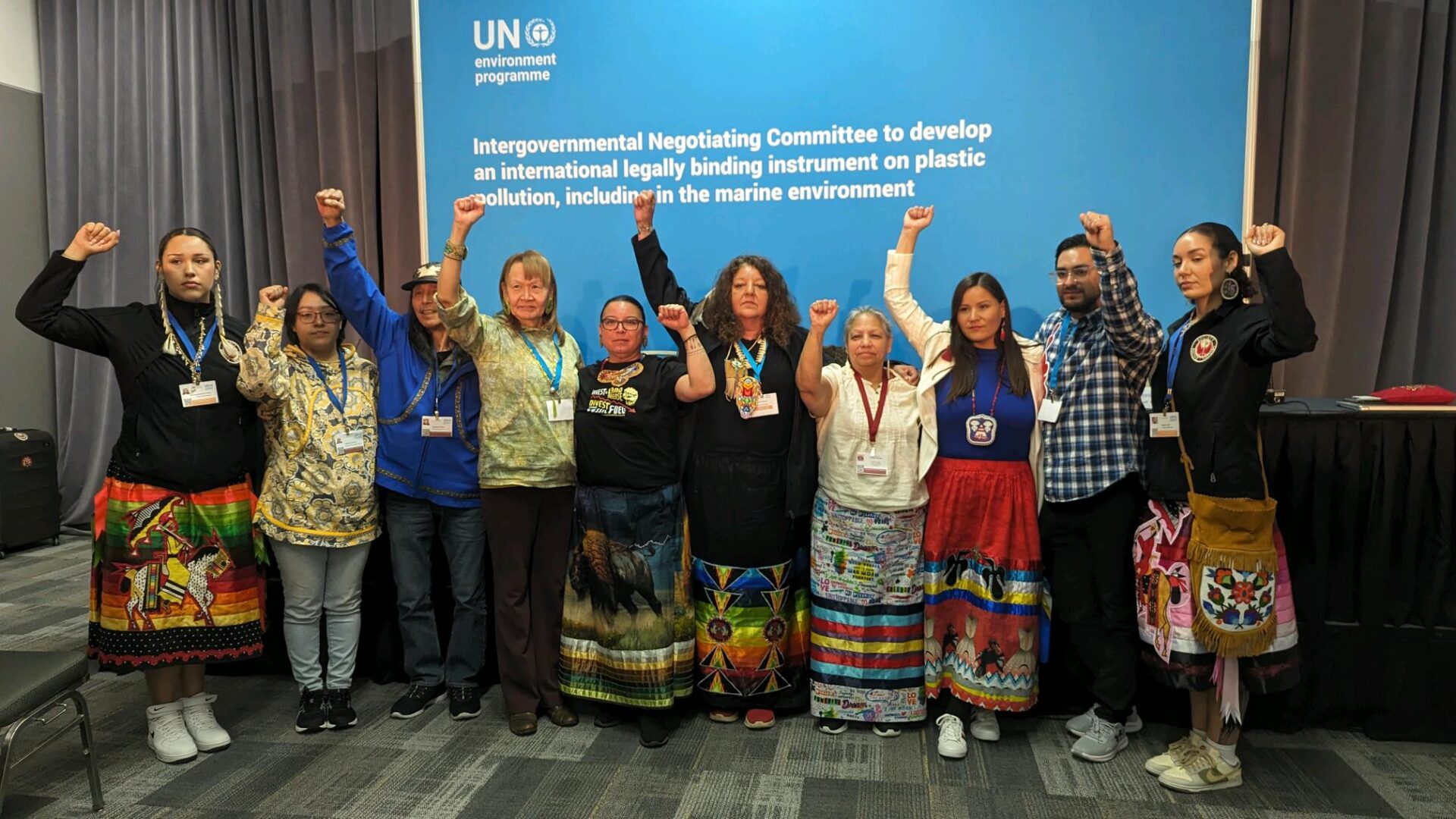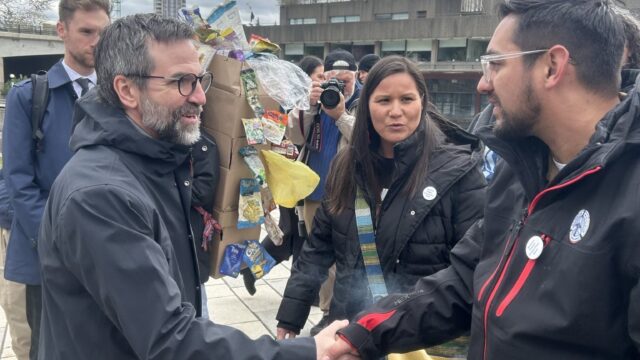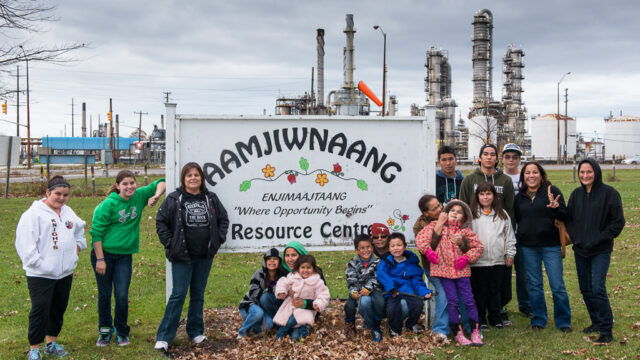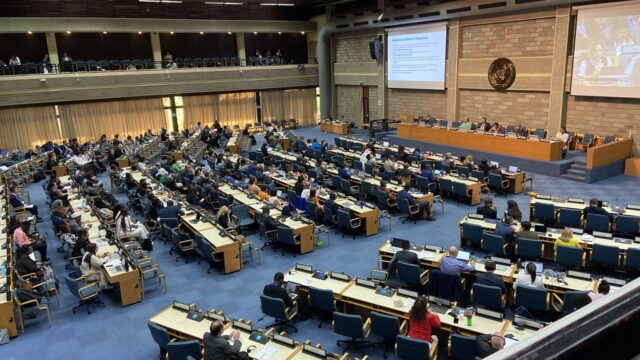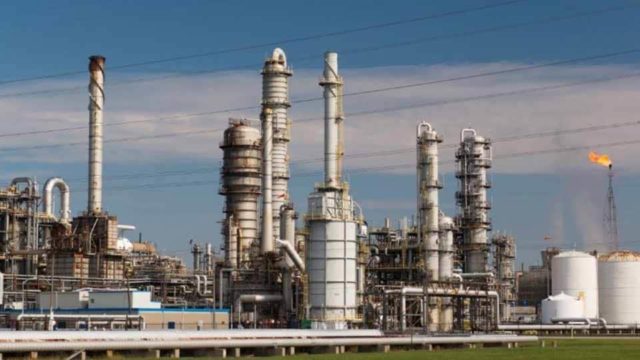OTTAWA | TRADITIONAL, UNCEDED TERRITORY OF THE ALGONQUIN ANISHINAABEG PEOPLE – Canadian groups call for member states at the UN negotiations to listen to advocacy on the damaging and even lethal public effects of thousands of chemicals used in plastics and make progress on this element in the global plastics treaty being negotiated in Ottawa this week. The groups are also calling on the Canadian government to take immediate action to protect communities in pollution hotspots here at home.
113 organizations, civil society groups, and frontline communities have signed onto an open letter in solidarity with the Aamjiwnaang community. The letter, addressed to the Canadian Minister of Environment and Climate Change Steven Guilbeault, calls on the federal government to take immediate steps to ensure the INEOS Styrolution plant in Sarnia, Ontario is closed until such a time that Aamjiwnaang First Nation is satisfied that INEOS Styrolution is able and willing to meet the community’s demands and health-based air quality standards.
Aamjiwnaang First Nation has been sounding the alarm after community members started falling ill due to exposure to high levels of benzene, a cancer-causing chemical. Emissions of benzene from the nearby styrene plant, INEOS Styrolution, in Sarnia, Ontario, frequently exceed air quality standards. Styrene is used to produce certain types of plastic.
The David Suzuki Foundation, Ecojustice, and Environmental Defence, and the Canadian Association of Physicians for the Environment are calling for the global plastics treaty to include:
- Limits on global plastic production and consumption
- Transparency for toxic chemicals, and restrictions on chemicals of concern
- A global ban on non-essential single-use plastics
Toxic chemicals are found at every stage of the lifecycle of plastics – from toxic emissions during production, like benzene, to the toxic chemicals found in some of our everyday plastic products, like Per- and polyfluoroalkyl substances (PFAS) used in some food containers, cosmetics, textiles and personal care products.
These chemicals and microplastics make their way into our oceans, environment, wildlife and into our bodies. Toxic additives and microplastics are being linked to serious neurodevelopmental disorders, reproductive disorders, asthma and cancers.
Janelle Nahmabin, Elected Councillor, Aamjiwnaang First Nation said:
“Aamjiwnaang First Nation wants to work collaboratively with state governments to create a healthier tomorrow for generations to come. The Anishinabe way of thinking is to consider seven generations ahead, and that is why we are here at INC-4 — to be part of the solution to the plastics problem.
“Indigenous Peoples must be active participants in the design and implementation of the plastics treaty. We — like everyone — have the right to a healthy environment and the results of these negotiations should include the duty to prevent exposure to hazardous substances. We have been here before industry and before Canada. This is our home that Canada is giving voice to on our behalf. Gaawiin.”
Melissa Gorrie, Law Reform Manager, Ecojustice, said:
“At all stages of its lifecycle, plastic is a ubiquitous pollutant that threatens human health and the environment. These harms disproportionately impact the daily lives of the people of Aamjiwnaang First Nation and Indigenous communities worldwide. It’s a grave injustice that demands policy and legal changes to address it, including a robust plastics treaty that stops plastic pollution at the source by targeting extraction and production.”
“It is critical that all efforts to confront the plastic pollution crisis – including the plastic treaty process – centre environmental justice and include Indigenous peoples as equal partners in decision making.”
Sabaa Khan, Climate Director, Director General of Quebec and Atlantic Canada, David Suzuki Foundation, commented: “In its current state, the global plastics economy is severely harming human and environmental health in all world regions, across generations and at all phases of the plastics lifecycle. Safeguarding the universal right to a healthy environment depends on an ambitious treaty that will limit the amount of plastic that is produced. But the plastics and fossil fuel industry’s focus on profits over our collective health and environmental safety put this agreement at risk if governments follow along.”
Dr. Sehjal Bhargava, Public Health and Preventive Medicine and Family Medicine Resident Physician, Canadian Association of Physicians for the Environment said:
“In family practice, I treat pregnant people, their newborns, and children of all ages and backgrounds at an inner-city community clinic in Ottawa. Children today are growing up in a world where plastic is literally everywhere, including our own bodies. Microplastics and toxic additives are being linked to serious neurodevelopmental disorders, reproductive disorders, asthma, cancers and more. These health impacts and risks can either increase or decrease based on decisions made by policy makers today. Government can allow petrochemical companies to continue this human experiment – or take action to reduce plastic production, and these toxic exposures, for once and for all. The moment is now.”
Karen Wirsig, Senior Program Manager for Plastics, Environmental Defence, said:
“Plastic pollution is a global crisis that intensifies every day when we let plastic production and use go unchecked. Aamjiwnaang and other communities on the frontline of plastic pollution cannot afford business as usual, and yet we are seeing business interests far too present on the negotiating floor while First Nations have no official voice. This cannot continue. We will be watching the countries that say they want ambition, including Canada. We need a strong treaty and a commitment to domestic action on plastics throughout their life cycle. ”
Background:
Letter from Civil Society and Frontline Groups Re Benzene Pollution in Aamjiwnaang
BACKGROUNDER: Canada and the global plastics treaty – what’s at stake – David Suzuki Foundation

